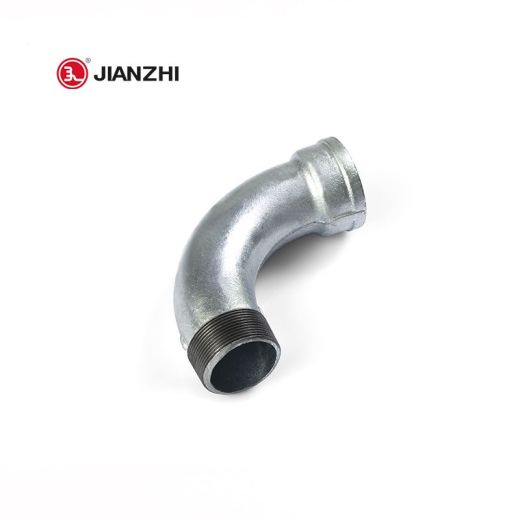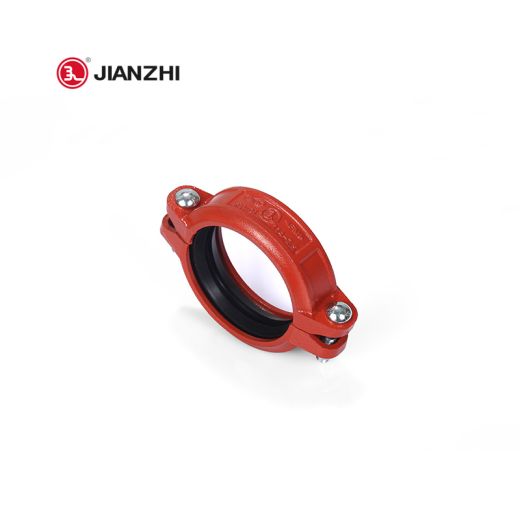Jan. 17, 2024
Plumbing is a vital part of the construction and industrial sectors. In order to ensure the stability and long-term use of the plumbing system, it is vital to choose the right plumbing materials. In this article, we will take an in-depth look at the various materials commonly used in plumbing.
Metal pipes are one of the most common materials used in piping systems. Commonly used metal pipes include galvanized steel pipe, stainless steel pipe, and copper pipe. Galvanized steel pipe is corrosion-resistant and is suitable for water and gas supply systems. Stainless steel pipes have a higher resistance to corrosion and are, therefore, widely used where high durability and hygiene standards are required. Copper pipes are favoured for their good thermal conductivity and corrosion resistance and are commonly used in heating systems.

Metal pipes are known for their durability, high strength, and resistance to high pressure and temperature, making them ideal for industrial and commercial applications. However, they are heavier, prone to corrosion over time, and can be more expensive compared to plastic alternatives. Proper maintenance can prolong their lifespan, but initial costs and installation are typically higher.
Plastic pipes have become increasingly popular in plumbing in recent years. Among them, polyvinyl chloride (PVC), polypropylene (PP), and polyethene (PE) pipes are common choices. PVC pipes are widely used in drainage systems and sewers due to their good corrosion resistance and strength. In contrast, PP pipes are suitable for chemical piping due to their high chemical resistance. PE pipes are commonly used for tap water transportation due to their lightweight, flexible and rust-resistant characteristics.
Plastic pipes are lightweight, corrosion-resistant, and easy to install, making them cost-effective for both residential and commercial use. They offer excellent flexibility and are ideal for various fluid transport needs. However, they may not withstand high temperatures or pressure, as well as metal pipes, and they can degrade when exposed to UV light over time.
Cast iron pipe is widely used in drainage systems due to its excellent strength and durability. It can be categorized into grey cast iron pipe and ductile iron pipe. Grey cast iron pipe excels in drainage, while ductile iron pipe is often used in more demanding environments, such as chemical and wastewater treatment, due to its higher strength and corrosion resistance.

Cast iron pipes are highly durable, corrosion-resistant, and have excellent soundproofing qualities, making them ideal for drainage and sewer systems. They can withstand high pressure and are long-lasting. However, they are heavy, difficult to install, and prone to rust if not properly coated. Higher initial costs and potential for cracking are also drawbacks.
Composite pipes combine the benefits of different materials to create a more comprehensive solution. Fiberglass-reinforced plastic (FRP) pipe is a common composite pipe with good corrosion resistance and strength. This type of pipe is suitable for some specialized environments, such as chemical plants and seawater transfer systems.
The choice of pipe material depends on the specific application scenario and needs. Different piping systems may require different combinations of materials to meet specific performance and environmental requirements.
Composite pipes combine the strengths of materials like plastic and metal, offering excellent corrosion resistance, durability, and lightweight properties. They are ideal for high-pressure applications and chemical transport. However, they can be more expensive than traditional pipes and may require specialized fittings for installation, increasing overall costs.
Plastic-metal composite pipe is an innovative piping material that combines the advantages of metal and plastic. It has the strength of a metal pipe and the corrosion resistance of a plastic pipe and is widely used in water, gas and HVAC systems. The flexibility and durability of this material make it ideal for many projects.
In plumbing, choosing the right pipe material is critical to the performance and longevity of the system. Metals, plastics, cast iron, and composites all play unique roles in different application scenarios. Engineers and designers need to consider the system's requirements, environmental conditions, and budget when selecting piping materials.
Plastic-metal composite pipes offer the best of both materials: corrosion resistance and flexibility from plastic, combined with the strength and pressure resistance of metal. They are lightweight, durable, and have good thermal stability. However, they are more costly than standard pipes and require specialized connectors, making installation more complex.
If you need fittings made from high-quality, reliable piping materials, contact us. JIANZHI As an experienced fittings supplier, we are committed to providing the highest quality products to meet the needs of your piping system. No matter the size of your project, we have a team of professionals who can provide you with a customized solution. Please feel free to contact us, and we will be happy to serve you!
SAFER
PRODUCT INFO
ABOUT JIANZHI
TECH DATA
Contact Us
E-mail: sales1@jianzhi-fitting.com
Tel: +86 18698027872
Office In Tianjin:
Heping District, Tianjin, China.
Production Base 1:
Chifeng, Inner Mongolia, China.
Production Base 2:
Tangshan City, Hebei Province, China.
Production Base 3:
Schelei Street,Baicoi City,Prahova County,Romania
Service email: info.ro@jianzhi-fitting.com
Sales email: market.ro@jianzhi-fitting.com
Tel: +40(755)011 849
